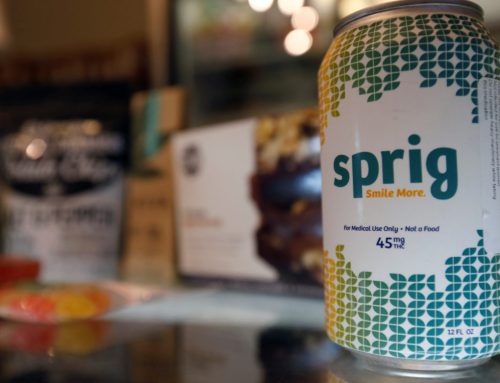New Jersey Moves Forward with Cannabis Consumption Lounge Regulations
LOS ANGELES- The New Jersey Cannabis Regulatory Commission (CRC) is taking significant strides in the realm of cannabis consumption with the unanimous approval of regulations for consumption lounges, a pivotal development in the state’s cannabis industry. The decision, made during a meeting on January 17, marks a progressive step towards actualizing these lounges in New Jersey.
The approval by the CRC, a body overseeing cannabis rules in the state, is contingent on the New Jersey Office of Administrative Law’s ratification. Following this, dispensary operators aspiring to establish consumption lounges must obtain municipal approval and an endorsement from the CRC, renewable annually.
Jeff Brown, the executive director of the CRC, emphasized the potential impact of these lounges on the state’s burgeoning cannabis industry. He anticipates that consumption areas, offering a communal and regulated environment for those aged 21 and over, will significantly contribute to the industry’s growth, potentially propelling it towards a billion-dollar market.
Key regulations stipulate that consumption areas cannot operate independently but must be annexed to a retail store. Dispensaries with multiple locations are limited to a single consumption space. The lounges are mandated to have robust ventilation systems to prevent any impact on neighboring areas. The prohibition of on-site sales of food, alcohol, tobacco, and nicotine products is in place, although patrons are permitted to bring their own food or non-alcoholic beverages. Medical cannabis patients are allowed to bring their own cannabis products for consumption on the premises.
The financial aspect involves an initial fee of $5,000 for a consumption lounge, with an annual fee thereafter, reduced to $1,000 for microbusinesses. Moreover, the CRC allows potential consumption lounges autonomy in setting operational rules, including hours, fees, and event management, albeit within the framework of local municipal regulations.
Dianna Houenou, CRC chairperson, highlighted the significance of these lounges beyond recreation, underscoring their role in providing equitable access and safe consumption spaces. This development is particularly vital for communities with limited consumption options, like renters who face more restrictions compared to homeowners.
The movement towards operational consumption lounges is still in progress, with a few more steps required before the CRC begins accepting applications. The New Jersey Monitor’s interaction with Alyza Brevard-Rodriguez, a dispensary owner in Jersey City, illustrates the anticipation and planning underway among business owners. Brevard-Rodriguez, looking to integrate smoke-and-yoga events or comedy nights into her dispensary’s second floor, echoes the sentiment of creating safe, communal spaces for cannabis consumption.
This development in New Jersey follows the statewide legalization of cannabis sales in April 2022 and the CRC’s initial proposal for consumption lounge regulations in December 2022, which underwent a 60-day public comment period. Scott Rudder, president of the New Jersey Cannabusiness Association, reflects on the evolution of the conversation around consumption lounges, seeing them as spaces for both medical patients and general consumers to unwind and socialize.
The cautious approach by business owners like Rudder and Brevard-Rodriguez, focusing on profitability before expanding into consumption lounge ventures, is indicative of the nascent nature of this sector. Meanwhile, Nevada, notably ahead in this aspect, is witnessing considerable progress with numerous consumption lounge licenses approved. The state anticipates 2024 to be a landmark year, with businesses navigating new challenges in ventilation, security, and safe consumption.
New Jersey’s advancement in establishing consumption lounges represents a significant chapter in the broader narrative of cannabis legalization and regulation, balancing business opportunities with public health and safety considerations. As these lounges begin to materialize, they promise to redefine the cannabis consumption landscape, reflecting evolving societal attitudes and legal frameworks surrounding cannabis.



































